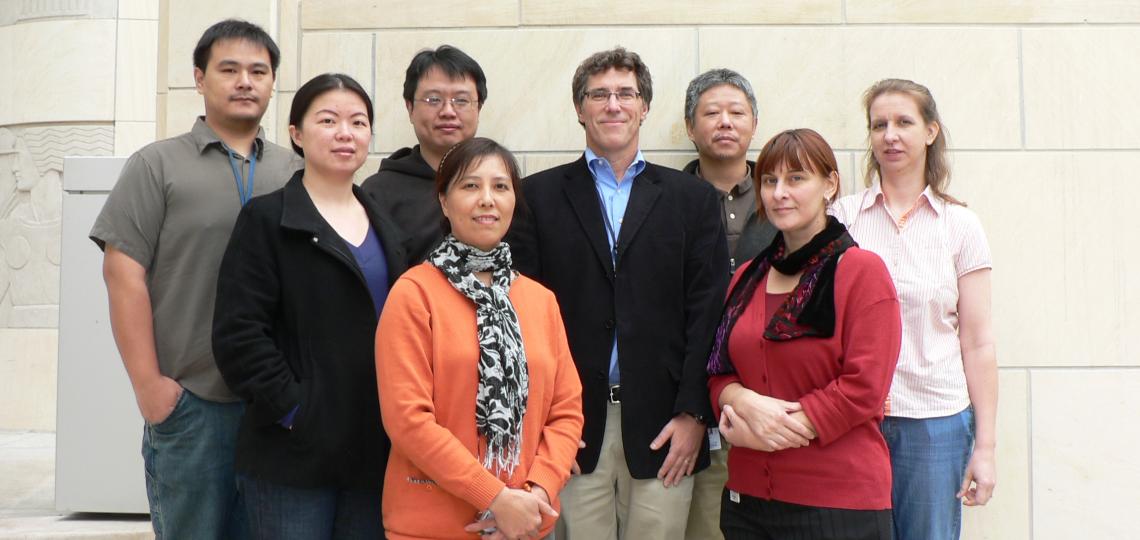
A group photo of the Michael Ittmann Lab members.
About Us
Research in the Michael Ittman Laboratory is focused on the molecular genetics of human prostate cancer and the pathobiology of benign prostatic hyperplasia. In particular, we are interested in role of Fibroblast Growth Factors in these two diseases.
Current Studies
We are carrying out a number of studies to determine the role of FGFs in prostate cancer including:
Direct analysis of human prostate cancers by Western blotting, immunohistochemistry, ELISA, quantitative RT-PCR and Northern blotting to determine quantitatively the content of FGFs in prostate cancer, the tissues (epithelial or stromal) expressing specific FGFs and the tissue specific expression of FGF receptors and their isoforms.
Use of dominant negative and activated receptors to determine the biological effects of FGF receptor activation and inactivation in prostate cancer cell lines and analysis of the signal transduction pathways mediating these effects.
Evaluation of the role of FGFs in tumor progression in vivo using transgenic and knockout mouse models.
Examining the effect of aging and tissue senescence on prostate cancer initiation and progression via the effect of these processes on FGF expression in vivo.
Benign Prostatic Hyperplasia
Benign Prostatic Hyperplasia is an extremely common disease of older men that causes significant morbidity in this group. The abnormal growth of the transition zone of the prostate leads to the outflow obstruction characteristic of this disease. Our recent work has identified an important role of increased expression of FGFs in this abnormal growth. We are now exploring the role of paracrine regulators of FGF expression in the increased expression of FGFs in BPH and the role of tissue senescence in mediating expression of FGFs and cytokines in BPH.








